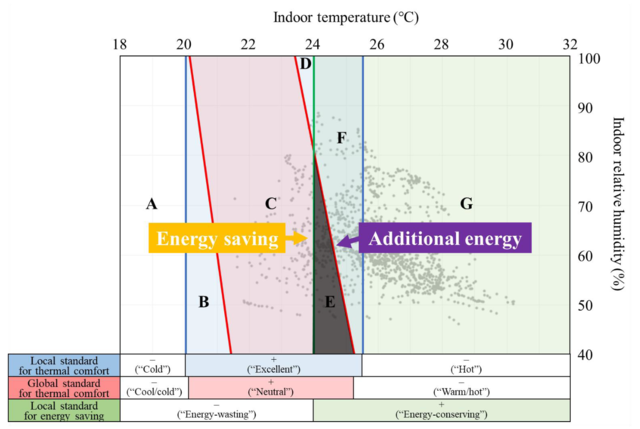An Article “Empirical investigation of occupant-centric thermal comfort in hotel guestrooms” has been published in the Renewable and Sustainable Energy Reviews, Elsevier, 189, 114046, 2024
Future Space Lab(지도교수:차승현)에서 [Renewable and Sustainable Energy Reviews]에 새로운 논문을 게재하였습니다.
Given the importance of occupant satisfaction with thermal comfort in hotel accommodations, previous studies have assessed thermal comfort using either local or global standards. In a hotel catering to diverse guests, a single standard may constrain the formulation of an optimal strategy for improving occupant satisfaction. To address this challenge, this study empirically investigates occupant-centric thermal comfort in hotel guestrooms located in a hot and humid climatic region. To this end, a living-lab-based case study was conducted on a hotel guestroom in Hong Kong, wherein two types of thermal comfort improvement strategies were devised from both local and global perspectives. First, to improve thermal comfort in line with the local standard, it was determined that an ancillary fan coil unit (FCU) energy consumption of 6.0 kW h (approximately 34 % of the existing energy consumption) was required. Second, to improve thermal comfort in line with the global standard, an ancillary FCU energy consumption of 9.4 kW h (approximately 53 % of the existing energy consumption) was necessary. Consequently, in a hot and humid climatic region, the distribution of thermal comfort may vary depending on the type of guest (e.g., domestic or foreign), and ancillary cooling energy expenditure may be incurred to enhance a guest's thermal comfort. The proposed approach is expected to contribute to the creation of occupant-tailored thermal comfort by considering an individual's thermal acclimation to a specific climatic region from both local and global perspectives.

Comments
Post a Comment